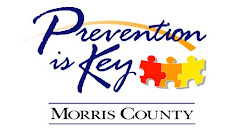 "New Social Engine" (NSE) student groups at Fairleigh Dickinson and Drew Universities recently organized a "Humans vs. Zombies" game where hundreds of students participated. Humans vs. Zombies is a survival game where "human" players fight off increasingly large numbers of "zombies." If a human is "turned," then that player becomes a zombie in turn.
"New Social Engine" (NSE) student groups at Fairleigh Dickinson and Drew Universities recently organized a "Humans vs. Zombies" game where hundreds of students participated. Humans vs. Zombies is a survival game where "human" players fight off increasingly large numbers of "zombies." If a human is "turned," then that player becomes a zombie in turn.NSE is becoming increasingly popular on college campuses in the area, and students are participating in the activities of the group as an alternative to engaging in high risk behaviors, such as binge drinking or drug use.
Drew University's student newspaper, The Acorn, published a full page article on students' experiences with NSE and the campus-wide Humans vs. Zombies game.
Students are also getting involved in NSE through Facebook groups, which exist for each NSE chapter on college campuses in Morris County. Some students even participated in creating video advertisements for the Humans vs. Zombies game, which are posted on YouTube.
NSE is a project of Morris County Prevention is Key and is funded through the Strategic Prevention Framework State Incentive Grant (SPF-SIG), a program designed to prevent and reduce the harmful consequences of alcohol use among 18-25 year olds in Morris County. For more information please contact Dave Bratton at 973-625-1998 or dbratton@mcpik.org.










